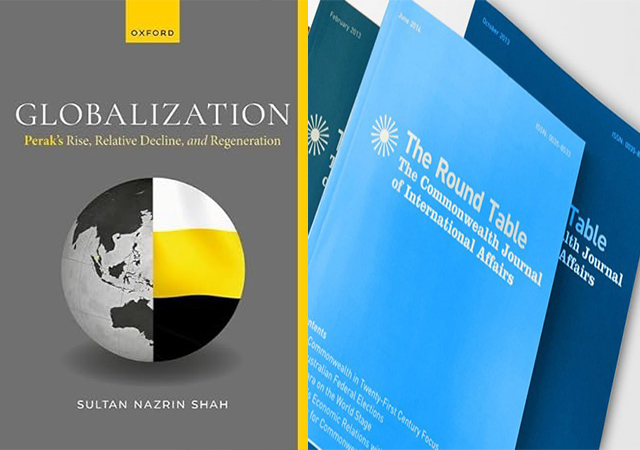
[This is an excerpt from an article in The Round Table: The Commonwealth Journal of International Affairs.]
Many of the promises that globalisation held out, when it emerged on the world scene in its most recent form around 1989, have subsequently given way to varying degrees of scepticism, disillusionment and even hostility in different parts of the world. While the cheerleaders of globalisation continue to sing its praises, a growing chorus of dissent has gathered momentum drawing attention to the concept’s flaws and limitations. Among other things, there is increasing concern that the benefits of globalisation are being unevenly distributed, with large numbers of people feeling marginalised and abandoned even as elites everywhere have risen inexorably in wealth and influence. In the stark words of Samuel Huntington, ‘blind faith in the inevitability of globalisation was increasingly distancing the elites from the majority’ leading disaffected populations to lose confidence in a process which was initially seen by many as emancipatory and enriching.
But it is well to remember that our present woes are far from unprecedented. Historically, globalisation, through its successive waves going back to the 19th century, has had a chequered record, as this sterling work of scholarship attempts to show. Though the book has a relatively narrow territorial focus – it deals with the impact of globalisation on the resource-rich state of Perak in western Malaysia over a period of some two centuries – the illumination offered by it is on an extensive and far-reaching scale. Indeed, there is much in the work which has the potential to make it a respectable sourcebook on the broader economic history of Perak.
More book reviews from The Round Table Journal
Commonwealth Bookshelf
The exegesis is set on an expansive canvas. Organised into four parts, the book traverses a wide spectrum of themes, including: the internal and external influences on Perak’s development; the central part played by tin mining (aided by the abundant supply of water from the state’s rivers); the boom in inward migration of workers from southern China, India, Ceylon and other places; the traditional system of governance, including the centrality of the Royal Court; the impact of colonial rule; the shifting fortunes of the tin industry; the rubber boom of the early 20th century; Japanese occupation during World War II; the emergence of Perak as a stronghold of the Communist Party of Malaya and the Emergency of 1948-1960; decolonisation and the exit of the British in 1957; the slump, recovery and ultimate collapse of the tin industry; the transition to rubber and palm oil as sources of revenue; the rise of Malaysia’s export manufacturing between 1970 and 2020 (which did not benefit Perak much for reasons which are well explained); the country’s New Economic Policy of 1970 following the race riots of the previous year; the broadening of Perak’s economic diversification, including into the service sector; demographic change and its effects; and the impact of the COVID-19 pandemic.
The central leitmotif of the book, globalisation and its consequences, is never lost sight of. Sultan Nazrin traces the ebb and flow of this process at various times (historic and contemporary), and also offers comparisons between Perak and other previously prosperous industrial centres in the western world which too suffered grievously from the onslaught of globalisation. That discussion takes in Sheffield in England and Scranton in the United States both of which, he notes, ‘went into a spiral of decline in the second half of the 20th century’ (p. 481). He believes that there are lessons that Perak can learn from Sheffield (but not from Scranton, which remains crippled economically). He also points to Cornwall (whose pre-eminence as a tin-mining region in England is still remembered wistfully) and Pittsburgh (a centre of steel production which had to ‘reinvent’ itself after a decline in the coal and steel industries in the 1980s). Decentralisation of powers, he contends, is crucial, as is ‘the strengthening of local institutional capacities and partnerships … ’ (p. 487) Another comparison which would have been apt, but which does not find a mention in the book, is with the linen industry in Ireland which, too, fell victim, broadly speaking, to the forces of globalisation in the 20th century.
Venkat Iyer is the Editor of The Round Table: The Commonwealth Journal of International Affairs.
Globalisation: Perak’s rise, relative decline, and regeneration by Sultan Nazrin Shah, Oxford, Oxford University Press, 2024.



